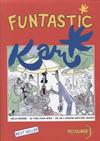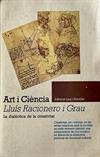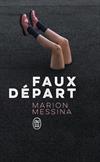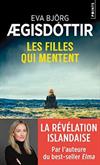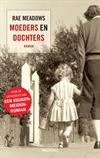
The Knitting Sutra: Craft As a Spiritual Practice
5 journalers for this copy...
I'm a lifelong knitter and have an extensive collection of knitting books I will never part with, but this was a disappointment. Something in the tone, the author just seems so full of herself or something. Maybe someone else will love it.
Journal Entry 2 by LaRue at --- Controlled Release, Bookring/Ray, RABCK etc. in Los Angeles, California USA on Friday, December 27, 2002
Release planned for Saturday, December 28, 2002 at Private release via US Mail in Los Angeles, California USA.
Sending to fellow bookcrosser Haruka in exchange for Democracy.
Sending to fellow bookcrosser Haruka in exchange for Democracy.
I should be finished with this book this week and will be sending it off to marinaw this friday. It's a good book so far. Sorry for being days late in making a journal entry!.
Journal Entry 4 by Haruka at --- Controlled Release, Bookring/Ray, RABCK etc. in Los Angeles, California USA on Saturday, January 25, 2003
Released on Saturday, January 25, 2003 at Air Mail in Los Angeles, California USA.
Sending it off too Marina ^_^
Sending it off too Marina ^_^
Caught! Thank you Haruka! Here it goes to my TBR pile...
From the inside cover flap:
"Knitting as prayer? Craft as spiritual path? In this wonderfully allusive story of the quest to master a craft, [the author's] love of knitting and her search for spiritual insight become powerfully and lyrically intertwined.
Lydon's journey begins when she knits a turquoise chenille sweater to help a broken bone in her arm 'knit.' In pursuit of a perfect silver button for her sweater--and a medicine man for her arm--she ends up on a Navajo reservation where a community of women live by the proceeds of their craft in a unified circle of livelihood, art, and spirituality. They remind Lydon of the women on the Shetland Islands who developed classic knitting patterns and of the women who gather at her local yarn shop. From old-fashioned quilting bees to the hundreds of knitters who communicate on the Internet, she recognizes in craftspeople the confluence of self, community, creativity, ritual, and the urge to beautify the everyday.
Each new knitting project she begins and every new skill she masters bring her closer to serenity and insight that have sometimes eluded her through years of spiritual explorations. In one passage, her arm healed and her passion for knitting rekindled, Lydon finds herself selling old books and clothes to buy a particularly extravagant yarn. The red sweater it becomes represents the lessons in daring and self-trust she learns while crafting it. Even a bout with cancer and the hiatus from knitting a tendinitis diagnosis demands guide her to take the lessons she has learned from knitting--sitting still, focusing the mind, asking for help--and apply them to the rest of her life."
Promised to daidy as part of a trade. Will include my thoughts in the next entry. Started reading (finally): 4/6/04
From the inside cover flap:
"Knitting as prayer? Craft as spiritual path? In this wonderfully allusive story of the quest to master a craft, [the author's] love of knitting and her search for spiritual insight become powerfully and lyrically intertwined.
Lydon's journey begins when she knits a turquoise chenille sweater to help a broken bone in her arm 'knit.' In pursuit of a perfect silver button for her sweater--and a medicine man for her arm--she ends up on a Navajo reservation where a community of women live by the proceeds of their craft in a unified circle of livelihood, art, and spirituality. They remind Lydon of the women on the Shetland Islands who developed classic knitting patterns and of the women who gather at her local yarn shop. From old-fashioned quilting bees to the hundreds of knitters who communicate on the Internet, she recognizes in craftspeople the confluence of self, community, creativity, ritual, and the urge to beautify the everyday.
Each new knitting project she begins and every new skill she masters bring her closer to serenity and insight that have sometimes eluded her through years of spiritual explorations. In one passage, her arm healed and her passion for knitting rekindled, Lydon finds herself selling old books and clothes to buy a particularly extravagant yarn. The red sweater it becomes represents the lessons in daring and self-trust she learns while crafting it. Even a bout with cancer and the hiatus from knitting a tendinitis diagnosis demands guide her to take the lessons she has learned from knitting--sitting still, focusing the mind, asking for help--and apply them to the rest of her life."
Promised to daidy as part of a trade. Will include my thoughts in the next entry. Started reading (finally): 4/6/04
I knew that I'd have plenty of time to read during my flights to and from the convention (especially with the long layover on the return leg). I didn't think I'd have time to finish both books [Year 1000 was the other], but I certainly count myself blessed that I did.
Knitting Sutra has been sitting on my TBR pile for over a year, and I'd decided in February to work toward getting some of the older books off my shelf, and I was lucky to find a taker for this one right away.
For the reader who expects and prefers a smooth, chronological flow to the book (as I did, in the beginning--prompted by the cover description), there will be some disappointment and confusion. Taken as short vignettes on a theme, however, the book then becomes less disjointed and more demonstrative of the author's varied life experiences which relate her craft to her spiritual growth. As soon as I got beyond the discrepancy between the jacket summary and the text of the book, I found it to be enjoyable and thought-provoking. There were a few factual errors (see comments below), and several things that were left unsaid or undeveloped. More elaboration on these points would have made it a more satisfying and inspiring book for me.
Quotes and commentary:
"Concentration practice strengthens and softens the mind. That's not a paradox. It's true."
--The muscle analogy and relation to yoga (the asanas) practice.
"Self-expression, whether individual or tribal, religious or secular, is to my mind one of the most beautiful impulses that we humans possess. We look at our brief time here on earth; we perceive our inconsequentiality in a vast universe of planets and stars; we know our connectedness to our ancestors and descendants and feel our mortality as we pass along the eternal continuum of time; and yet we still want others to know who we were, how we lived, that we were here and saw and felt and knew beauty."
--It always amazes me what knowledge exists in this world that goes unrecorded and that which leaves due to decay. Of course the dilemma of how some wisdom needs to transform in order to be reborn is raised here.
"Is it possible that female spirituality through the ages may have been concealed in the minutae of domestic life rather than expressed in the grandiosity and pomposity of churches and sermons?"
--From my vantage point, all I can say is: duh! No, wait, there's more: I can bemoan the ills of society which has broken down the familial bonds to the point where woman have not imparted neither the sense of honor nor the crafts they have honed.
"Just as creativity is one of the highest forms of human expression, it seems equally true that it is our duty to pass on what we know to future generations so that the precious knowledge, hard-won and painstakingly accumulated, will not be lost."
--What is not said concerns the work necessary to maintain functional bonds between women in the family so that the generations are willing to communicate with each other.
"The puberty transition seems to force us into a false self, one that will be pleasing to our parents and teachers and [yet] sexually alluring, while the motherhood self is one adopted for the benefit of others rather than for ourselves. Menopause may be the first time in our lives when we may be free to discover who we really are, away from the disapproving eyes of society, which makes it abundantly clear it no longer needs us."
--I'm not so certain I buy into this. While I agree that transitions are hard, and that constructing roles for the different goals we have in life is necessary, I don't think that it's healthy to act as if we do do not have a core self. Adding facets is one thing, but switching personalities for the benefit of others helps no one. I also have to question her assessment of menopausal women's place in today's society. Hers is the baby boomer generation which holds so much more power than she'll admit. Who has the high-profile, professional jobs? Who heads up the community committees? Hmmm?
"You learn about a culture differently when working, as opposed to looking at, a pattern; you form an affinity on a deeper level of being. Some part of our consciousness grasps purely and empathetically the mind-set of the person who created the design."
--I'd have to add that we bring a lot of life experience to whatever technique we're using on the pattern, and it is from this that we (necessarily) create our own moment with it.
"...our society's 'lunatic insistence on progress, on growth, on gross national product...is destroying the land and air and water, the wild animals and plants...not to speak of quality and craftsmanship, birdsong, silence, night, and the very soul of man.' "
--Back to the evolution of wisdom...well, I'm not so sure we as a society are truly operating from a place of wisdom. Progress without ethics or safeguards personally doesn't inspire faith in those who promote it.
"The whole world is alive, composed of spirit, and needs to be approached with gratitude, reverence, and respect."
--A basic parallel to my brand of spirituality (Wicca), and one that I hope to pass on to whoever I mentor in this lifetime.
"The past is not gone and firmly out of the way but rather is alive in us in the present, as are the lives of our ancestors and their experience of the world."
--A tall order to remember those who came before and to figure out what we can honor them for when it is difficult to find their redeeming qualities.
"I was looking for a way to draw closer to the Creator, in whom I believed with all my heart, for strength, guidance, comfort, and the evolution of my soul, and I was willing to try any number of things to find the way that suited me best. I characterized this period...as a time of 'spiritual overexertion.' "
--When I left the Catholic Church and began to learn about Wicca, I filled my days with inner child exercises, tarot card reading, astrology chart interpretation, group therapy, and relearning Greek mythology. In part, this overload helped me to deal with my divorce and unemployment issues in a manner that I could handle. Given the freedom of choice and exploration, I was able to find the most useful tools for my spiritual development. I've since dropped some, strengthened others, and added new pantheons, divinations, and meditations, but I'm grateful for the time and energy spent on past exercises.
"...the self-knowledge grew, sometimes out of control."
--On the flip side, one can get so far into the head that the heart gets neglected and what looks like progress is really a brick wall.
"...the sacred manuscript of nature."
--Which, of course, is all mankind had for thousands of years before there was alphabet, before reading, before printing, before a wide distribution of people able to read the books, and so on. And, after humans have rendered their home uninhabitable, nature will be what remains [have a listen to Take It Back, by Pink Floyd].
"...nature is full of rhythm and repetition...even people who are not artists express their response to nature with pattern...we expand our awareness and comprehension of the world around us, and we seek to duplicate its beauty and fathom its secrets by depicting it in symbols and patterns."
--Curious how so much of decor in our homes is nature-oriented; in mine alone I have wolves, roses, grapes, shells, celestial objects, and feathers. Even outside, I'm replacing the pressed wood with honeycomb rock to define the boundaries of my flower beds. Yet I do everything possible to keep bugs out and a comfortable climate in.
"...we are most like that Creator when we are creating something ourselves..so the very act is sacred. The desire to make things to wear, to use as tools, and to record how we live and what we see in our lives is probably hardwired into the human psyche."
--So, if exercising our hands and our minds connects us to that particular brand of power, what exactly does this activity shape? Does it affect morality? community? What price have we paid in the name of material, mechanical, technological progress? Does coding give the same satisfaction as furniture-making, when the technology outdates within months?
"There is another, unseen dimension to the making of objects, and its mystical importance stems directly and precisely from its absence...'what makes the bowl useful is the space within...the empty space represents the inner life, what is most important but unseen.' "
--So, maybe by understanding this relationship enables our evolution, by creating hands-on experience, we shape it. Do we hinder our spiritual development by filling our empty space with others' truths and dictums?
p. 105 correction: Diana was the Roman counterpart to Artemis of the Greeks, who was not a weaver. Arachne's contest was with Athena, who was not so much jealous of Arachne's skill, but enraged by the content of Arachne's tapestry (mostly concerning Zeus's exploits in fertility).
"As a knitter works, her hair may become bound up in the stitches...and certainly it marks the garment in almost a pagan magical way."
--Well, I'll admit to not working often with hair in my magical endeavors (as I understand it,the voudoun religion does), but I'm wondering what exactly would be the intent behind its inclusion in what could already be a bespelled object by virtue of its creation.
"Follow the thread, the circle, the web, the pattern that winds through a life."
--What would our society, our world look like if this practice was common, if not ingrained in us?
" 'The lyf so shorte, the crafte so long to lerne' [Chaucer]...the purpose of the craft is not so much to make beautiful things, as it is to become beautiful inside while you are making [them]."
--This makes me consider the energy flow in the other direction. That is, how much does our inner landscape affect the objects we create? As a Wiccan, that which I create for a purpose should be balanced with intent. Anyone who has read Like Water For Chocolate knows what I'm talking about. I suppose one could make a case for the existence of a feedback loop for this activity.
"It is a truism of spiritual studies that you cannot ask for knowledge to be given you for your own benefit. You receive spiritual knowledge as a sacred trust; you vow to be a channel and transmit whatever you learn for the benefit of all sentient beings."
--Well I have to disagree with this, at least partially. Mine is a solitary practice; I have no covenmates nor students nor study partners. Another facet of my disagreement involves validity; in a gathering of witches, there are precious few similarities in the practices and preferences of each. What enlightens one will not appeal to another. I guess I don't understand why seeking knowledge for yourself is wrong. The energy deposited into teaching will come out in the seeker's practice, and will (ideally) affect the world positively, even if the knowledge itself isn't passed on. I don't disagree with the sentiment behind the author's assertion. Lording knowledge over seekers is certainly a poor attitude to have. Willingness to share any sort of knowledge is definitely admirable. My bottom line: knowledge has to be beneficial to me first if I'm going to pass it on. Otherwise, how can I make a sound judgement regarding its worthiness to someone else?
"How you do anything is how you do everything."
One's basic approach to life is what it is. I believe I can safely say that most of the projects I'm drawn to begin are long-term and never-ending in nature. Of course, it's driven others crazy for me to "have not finished [blank] yet." The pressure of having so much left unfinished sometimes causes me loads of grief. Of course, I have to wonder how much convincing I need that I won't ever be bored.
Lydon states that her next book will be devoted to birds, especially the hummingbird. I wonder if she's made the connection between what Natives call "hummingbird medicine" and where she is in the learning cycle.
Lydon has repeatedly returned to the theme of the responsibility of sharing. Of course, finding our place in our chosen communities is an important life task and has serious consequences for our development, for good or ill. This task needs to come well before one does any reaching out. Also, this assumes a correct temperament for interacting with others and a skill for dispensing the knowledge.
Other books to find:
It's Easier Than You Think, by Sylvia Boorstein
Indian Country, by Peter Mathiessen
Knitting Sutra has been sitting on my TBR pile for over a year, and I'd decided in February to work toward getting some of the older books off my shelf, and I was lucky to find a taker for this one right away.
For the reader who expects and prefers a smooth, chronological flow to the book (as I did, in the beginning--prompted by the cover description), there will be some disappointment and confusion. Taken as short vignettes on a theme, however, the book then becomes less disjointed and more demonstrative of the author's varied life experiences which relate her craft to her spiritual growth. As soon as I got beyond the discrepancy between the jacket summary and the text of the book, I found it to be enjoyable and thought-provoking. There were a few factual errors (see comments below), and several things that were left unsaid or undeveloped. More elaboration on these points would have made it a more satisfying and inspiring book for me.
Quotes and commentary:
"Concentration practice strengthens and softens the mind. That's not a paradox. It's true."
--The muscle analogy and relation to yoga (the asanas) practice.
"Self-expression, whether individual or tribal, religious or secular, is to my mind one of the most beautiful impulses that we humans possess. We look at our brief time here on earth; we perceive our inconsequentiality in a vast universe of planets and stars; we know our connectedness to our ancestors and descendants and feel our mortality as we pass along the eternal continuum of time; and yet we still want others to know who we were, how we lived, that we were here and saw and felt and knew beauty."
--It always amazes me what knowledge exists in this world that goes unrecorded and that which leaves due to decay. Of course the dilemma of how some wisdom needs to transform in order to be reborn is raised here.
"Is it possible that female spirituality through the ages may have been concealed in the minutae of domestic life rather than expressed in the grandiosity and pomposity of churches and sermons?"
--From my vantage point, all I can say is: duh! No, wait, there's more: I can bemoan the ills of society which has broken down the familial bonds to the point where woman have not imparted neither the sense of honor nor the crafts they have honed.
"Just as creativity is one of the highest forms of human expression, it seems equally true that it is our duty to pass on what we know to future generations so that the precious knowledge, hard-won and painstakingly accumulated, will not be lost."
--What is not said concerns the work necessary to maintain functional bonds between women in the family so that the generations are willing to communicate with each other.
"The puberty transition seems to force us into a false self, one that will be pleasing to our parents and teachers and [yet] sexually alluring, while the motherhood self is one adopted for the benefit of others rather than for ourselves. Menopause may be the first time in our lives when we may be free to discover who we really are, away from the disapproving eyes of society, which makes it abundantly clear it no longer needs us."
--I'm not so certain I buy into this. While I agree that transitions are hard, and that constructing roles for the different goals we have in life is necessary, I don't think that it's healthy to act as if we do do not have a core self. Adding facets is one thing, but switching personalities for the benefit of others helps no one. I also have to question her assessment of menopausal women's place in today's society. Hers is the baby boomer generation which holds so much more power than she'll admit. Who has the high-profile, professional jobs? Who heads up the community committees? Hmmm?
"You learn about a culture differently when working, as opposed to looking at, a pattern; you form an affinity on a deeper level of being. Some part of our consciousness grasps purely and empathetically the mind-set of the person who created the design."
--I'd have to add that we bring a lot of life experience to whatever technique we're using on the pattern, and it is from this that we (necessarily) create our own moment with it.
"...our society's 'lunatic insistence on progress, on growth, on gross national product...is destroying the land and air and water, the wild animals and plants...not to speak of quality and craftsmanship, birdsong, silence, night, and the very soul of man.' "
--Back to the evolution of wisdom...well, I'm not so sure we as a society are truly operating from a place of wisdom. Progress without ethics or safeguards personally doesn't inspire faith in those who promote it.
"The whole world is alive, composed of spirit, and needs to be approached with gratitude, reverence, and respect."
--A basic parallel to my brand of spirituality (Wicca), and one that I hope to pass on to whoever I mentor in this lifetime.
"The past is not gone and firmly out of the way but rather is alive in us in the present, as are the lives of our ancestors and their experience of the world."
--A tall order to remember those who came before and to figure out what we can honor them for when it is difficult to find their redeeming qualities.
"I was looking for a way to draw closer to the Creator, in whom I believed with all my heart, for strength, guidance, comfort, and the evolution of my soul, and I was willing to try any number of things to find the way that suited me best. I characterized this period...as a time of 'spiritual overexertion.' "
--When I left the Catholic Church and began to learn about Wicca, I filled my days with inner child exercises, tarot card reading, astrology chart interpretation, group therapy, and relearning Greek mythology. In part, this overload helped me to deal with my divorce and unemployment issues in a manner that I could handle. Given the freedom of choice and exploration, I was able to find the most useful tools for my spiritual development. I've since dropped some, strengthened others, and added new pantheons, divinations, and meditations, but I'm grateful for the time and energy spent on past exercises.
"...the self-knowledge grew, sometimes out of control."
--On the flip side, one can get so far into the head that the heart gets neglected and what looks like progress is really a brick wall.
"...the sacred manuscript of nature."
--Which, of course, is all mankind had for thousands of years before there was alphabet, before reading, before printing, before a wide distribution of people able to read the books, and so on. And, after humans have rendered their home uninhabitable, nature will be what remains [have a listen to Take It Back, by Pink Floyd].
"...nature is full of rhythm and repetition...even people who are not artists express their response to nature with pattern...we expand our awareness and comprehension of the world around us, and we seek to duplicate its beauty and fathom its secrets by depicting it in symbols and patterns."
--Curious how so much of decor in our homes is nature-oriented; in mine alone I have wolves, roses, grapes, shells, celestial objects, and feathers. Even outside, I'm replacing the pressed wood with honeycomb rock to define the boundaries of my flower beds. Yet I do everything possible to keep bugs out and a comfortable climate in.
"...we are most like that Creator when we are creating something ourselves..so the very act is sacred. The desire to make things to wear, to use as tools, and to record how we live and what we see in our lives is probably hardwired into the human psyche."
--So, if exercising our hands and our minds connects us to that particular brand of power, what exactly does this activity shape? Does it affect morality? community? What price have we paid in the name of material, mechanical, technological progress? Does coding give the same satisfaction as furniture-making, when the technology outdates within months?
"There is another, unseen dimension to the making of objects, and its mystical importance stems directly and precisely from its absence...'what makes the bowl useful is the space within...the empty space represents the inner life, what is most important but unseen.' "
--So, maybe by understanding this relationship enables our evolution, by creating hands-on experience, we shape it. Do we hinder our spiritual development by filling our empty space with others' truths and dictums?
p. 105 correction: Diana was the Roman counterpart to Artemis of the Greeks, who was not a weaver. Arachne's contest was with Athena, who was not so much jealous of Arachne's skill, but enraged by the content of Arachne's tapestry (mostly concerning Zeus's exploits in fertility).
"As a knitter works, her hair may become bound up in the stitches...and certainly it marks the garment in almost a pagan magical way."
--Well, I'll admit to not working often with hair in my magical endeavors (as I understand it,the voudoun religion does), but I'm wondering what exactly would be the intent behind its inclusion in what could already be a bespelled object by virtue of its creation.
"Follow the thread, the circle, the web, the pattern that winds through a life."
--What would our society, our world look like if this practice was common, if not ingrained in us?
" 'The lyf so shorte, the crafte so long to lerne' [Chaucer]...the purpose of the craft is not so much to make beautiful things, as it is to become beautiful inside while you are making [them]."
--This makes me consider the energy flow in the other direction. That is, how much does our inner landscape affect the objects we create? As a Wiccan, that which I create for a purpose should be balanced with intent. Anyone who has read Like Water For Chocolate knows what I'm talking about. I suppose one could make a case for the existence of a feedback loop for this activity.
"It is a truism of spiritual studies that you cannot ask for knowledge to be given you for your own benefit. You receive spiritual knowledge as a sacred trust; you vow to be a channel and transmit whatever you learn for the benefit of all sentient beings."
--Well I have to disagree with this, at least partially. Mine is a solitary practice; I have no covenmates nor students nor study partners. Another facet of my disagreement involves validity; in a gathering of witches, there are precious few similarities in the practices and preferences of each. What enlightens one will not appeal to another. I guess I don't understand why seeking knowledge for yourself is wrong. The energy deposited into teaching will come out in the seeker's practice, and will (ideally) affect the world positively, even if the knowledge itself isn't passed on. I don't disagree with the sentiment behind the author's assertion. Lording knowledge over seekers is certainly a poor attitude to have. Willingness to share any sort of knowledge is definitely admirable. My bottom line: knowledge has to be beneficial to me first if I'm going to pass it on. Otherwise, how can I make a sound judgement regarding its worthiness to someone else?
"How you do anything is how you do everything."
One's basic approach to life is what it is. I believe I can safely say that most of the projects I'm drawn to begin are long-term and never-ending in nature. Of course, it's driven others crazy for me to "have not finished [blank] yet." The pressure of having so much left unfinished sometimes causes me loads of grief. Of course, I have to wonder how much convincing I need that I won't ever be bored.
Lydon states that her next book will be devoted to birds, especially the hummingbird. I wonder if she's made the connection between what Natives call "hummingbird medicine" and where she is in the learning cycle.
Lydon has repeatedly returned to the theme of the responsibility of sharing. Of course, finding our place in our chosen communities is an important life task and has serious consequences for our development, for good or ill. This task needs to come well before one does any reaching out. Also, this assumes a correct temperament for interacting with others and a skill for dispensing the knowledge.
Other books to find:
It's Easier Than You Think, by Sylvia Boorstein
Indian Country, by Peter Mathiessen
Journal Entry 7 by marinaw at Mailed To Fellow Bookcrosser in -- Mail or by hand-rings, RABCK, meetings --, Michigan USA on Thursday, September 30, 2004
Released 19 yrs ago (9/30/2004 UTC) at Mailed To Fellow Bookcrosser in -- Mail or by hand-rings, RABCK, meetings --, Michigan USA
WILD RELEASE NOTES:
RELEASE NOTES:
Finally going in the mail from CA to daidy.
Finally going in the mail from CA to daidy.
Thanks Marinaw, looking forward to reading this one.
I must say that I was disappointed in this book. Lydon has an interesting idea of how anything we're passionate about (for her, knitting) can lead us to our own spiritual path but she trys to touch on so many topics that she doesn't really cover any of them very well. She would have done better to either write a longer book that would have allowed her to expand on what she talks about or else to have left out half the stories and written more about the ones that were left.
ck
ck
Wow! What an impressive history this BC book has, with such erudite posts! I got it from The Cheshire Kat after months of never seeing anything I wanted there..and this has been a book I've wanted to read for a long time. Of course, I've wanted to learn to knit for a long time too, but this is a start!
After several failed attempts to learn to knit, and several failed attempts to read this book, I believe it's time to release it into the wild - and am doing so into my new LFL, Hygge Books. Hope it finds a more receptive reader!
